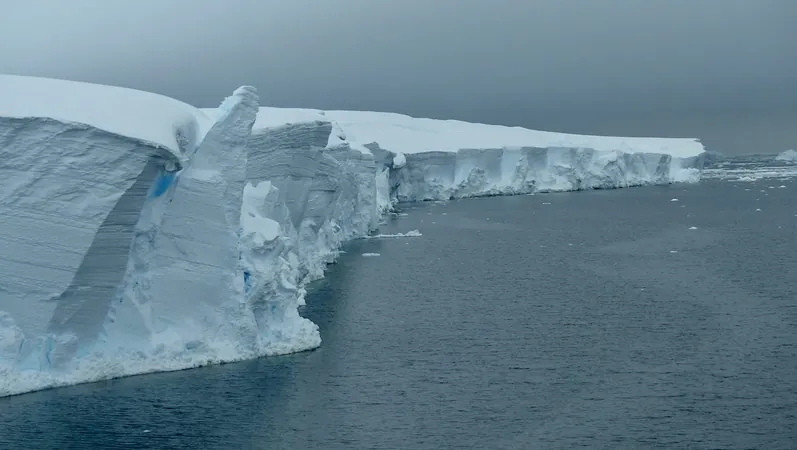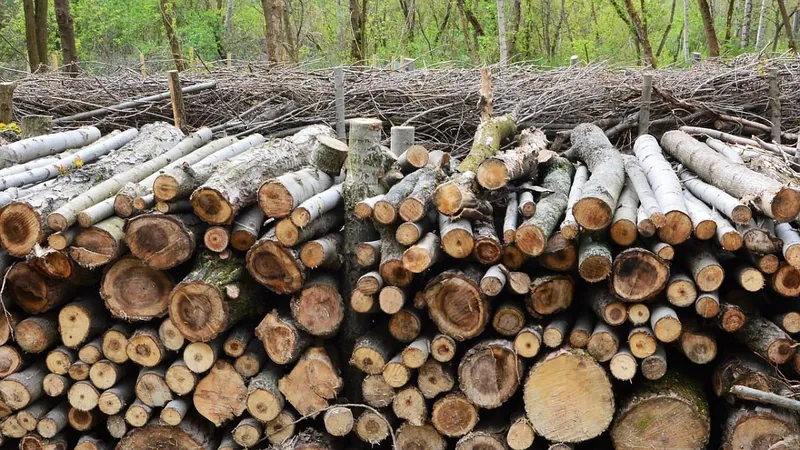
Alarming Revelations from the Ice: The Thwaites Glacier's Impending Collapse
2024-09-21
Introduction
A large portion of the Antarctic Ice Sheet is on a downward trajectory, as new revelations from a collaborative UK-US research team paint a bleak picture of how the Thwaites Glacier is destined for collapse.
The International Thwaites Glacier Collaboration
Since the inception of the International Thwaites Glacier Collaboration (ITGC) in 2018, scientists have delved into the complexities and changes occurring at the Thwaites Glacier in West Antarctica, which has emerged as one of the fastest-changing glaciers globally. This week, experts convened at the British Antarctic Survey (BAS) in Cambridge to analyze their striking observations and discuss the intricate mechanisms behind this alarming retreat.
Historical Context
Prior to this collaboration, little information existed about the forces governing the retreat of Thwaites Glacier, which is roughly the size of Great Britain. Should it collapse entirely, it could contribute to a staggering 65 cm rise in sea levels, significantly threatening coastal communities worldwide.
Ice Flow and Sea Level Rise
The Thwaites Glacier, with thicknesses exceeding 2,000 meters (over 6,500 feet), has seen a more than twofold increase in the volume of ice flowing into the sea from it and its neighboring glaciers from the 1990s to the 2010s. The surrounding Amundsen Sea Embayment is now responsible for around 8% of the 4.6 mm annual global sea level rise.
Expert Opinions
Dr. Rob Larter, a marine geophysicist at BAS, emphasized, 'Thwaites has been retreating for over 80 years, with a marked acceleration in the last three decades. Our findings suggest that this trend will only continue to worsen.' The ITGC aims to unravel the complex physical processes at play within the glacier, aiming to produce more accurate forecasts for its future behavior.
Concerns About Accelerated Retreat
Researchers are increasingly concerned that various newly identified processes could lead to an accelerated retreat of Thwaites Glacier much sooner than previously anticipated. 'There is a consensus that Thwaites' retreat will ramp up within the next century. However, certain factors that remain poorly understood could destabilize this timeline,' warned Dr. Larter.
Long-Term Projections
The projections are grim, anticipating significant ice loss from Thwaites—and potentially much of the West Antarctic Ice Sheet—by the 23rd century. The unique geographical position of Thwaites makes it exceptionally vulnerable; it sits on a bed far below sea level, sloping toward West Antarctica's core, further exacerbating the risk of rapid ice loss.
Technological Advances in Research
Utilizing cutting-edge technology, including underwater robots and innovative modeling techniques, scientists are uncovering the glacier's behavior, improving predictive models despite the fundamental uncertainties that persist. Thwaites Glacier is about 120 km wide and serves as a linchpin to the West Antarctic Ice Sheet, which could contribute an extraordinary 3.3 meters to global sea levels if entirely melted.
Warnings from Scientists
Dr. Ted Scambos, the US science coordinator of the ITGC, voiced grave concerns about the future, stating, 'Current models predict persistent ice loss that could accelerate well into the 22nd century, potentially leading to a catastrophic collapse of the West Antarctic Ice Sheet in the 23rd century.'
The Need for Action
Given these ominous findings, experts assert that immediate and sustained climate interventions could mitigate some impacts, although benefits may be delayed, particularly in terms of halting the flow of warm deep ocean water, the primary culprit behind the glacier's retreat.
Conclusion
The research is funded by pivotal organizations like the US National Science Foundation and the UK Natural Environment Research Council, highlighting the critical need for global focus and action in the face of this climatic crisis. What does the future hold for our planet as we grapple with catastrophic climate change? The clock is ticking, and the consequences may be closer than you think!



 Brasil (PT)
Brasil (PT)
 Canada (EN)
Canada (EN)
 Chile (ES)
Chile (ES)
 España (ES)
España (ES)
 France (FR)
France (FR)
 Hong Kong (EN)
Hong Kong (EN)
 Italia (IT)
Italia (IT)
 日本 (JA)
日本 (JA)
 Magyarország (HU)
Magyarország (HU)
 Norge (NO)
Norge (NO)
 Polska (PL)
Polska (PL)
 Schweiz (DE)
Schweiz (DE)
 Singapore (EN)
Singapore (EN)
 Sverige (SV)
Sverige (SV)
 Suomi (FI)
Suomi (FI)
 Türkiye (TR)
Türkiye (TR)